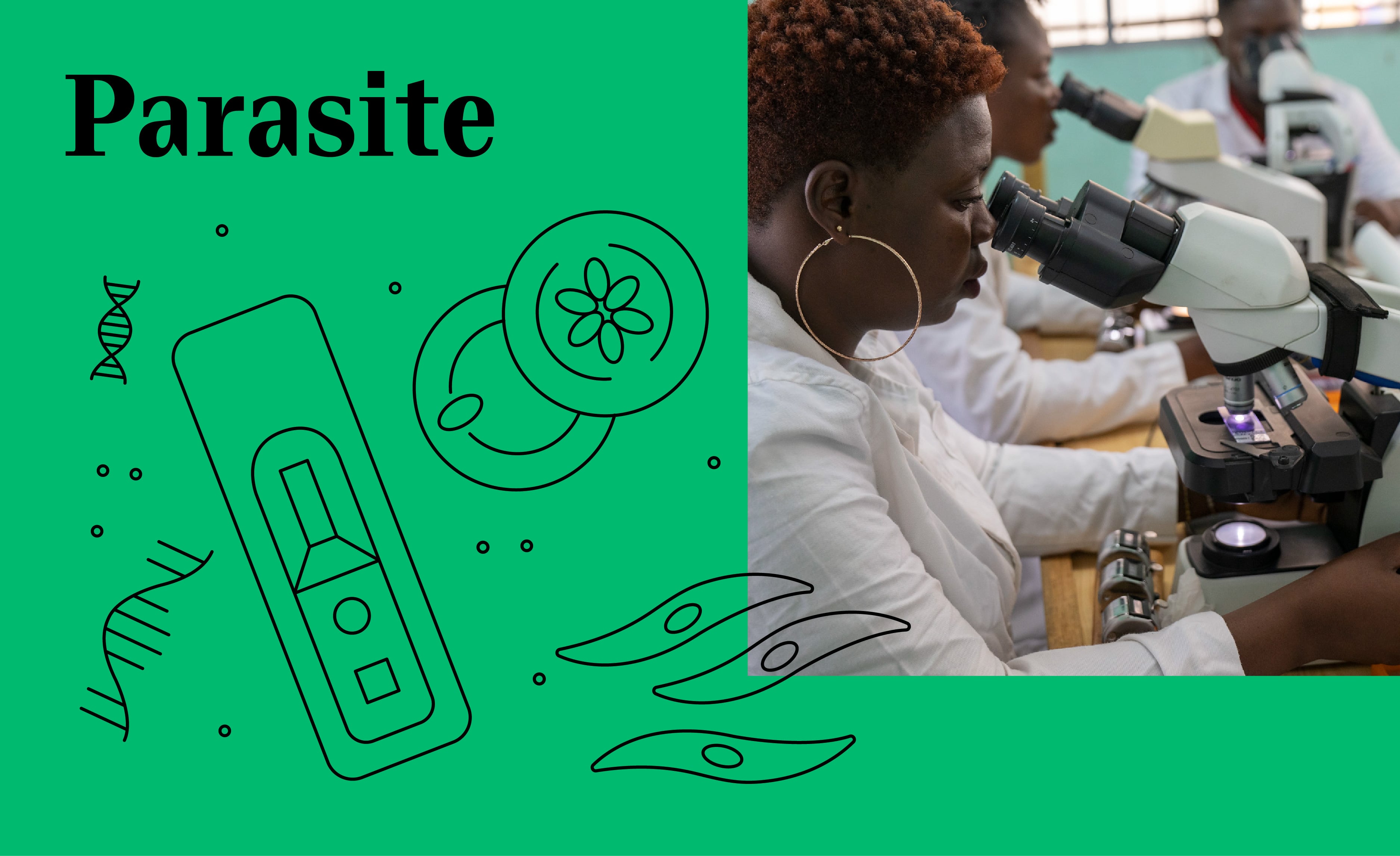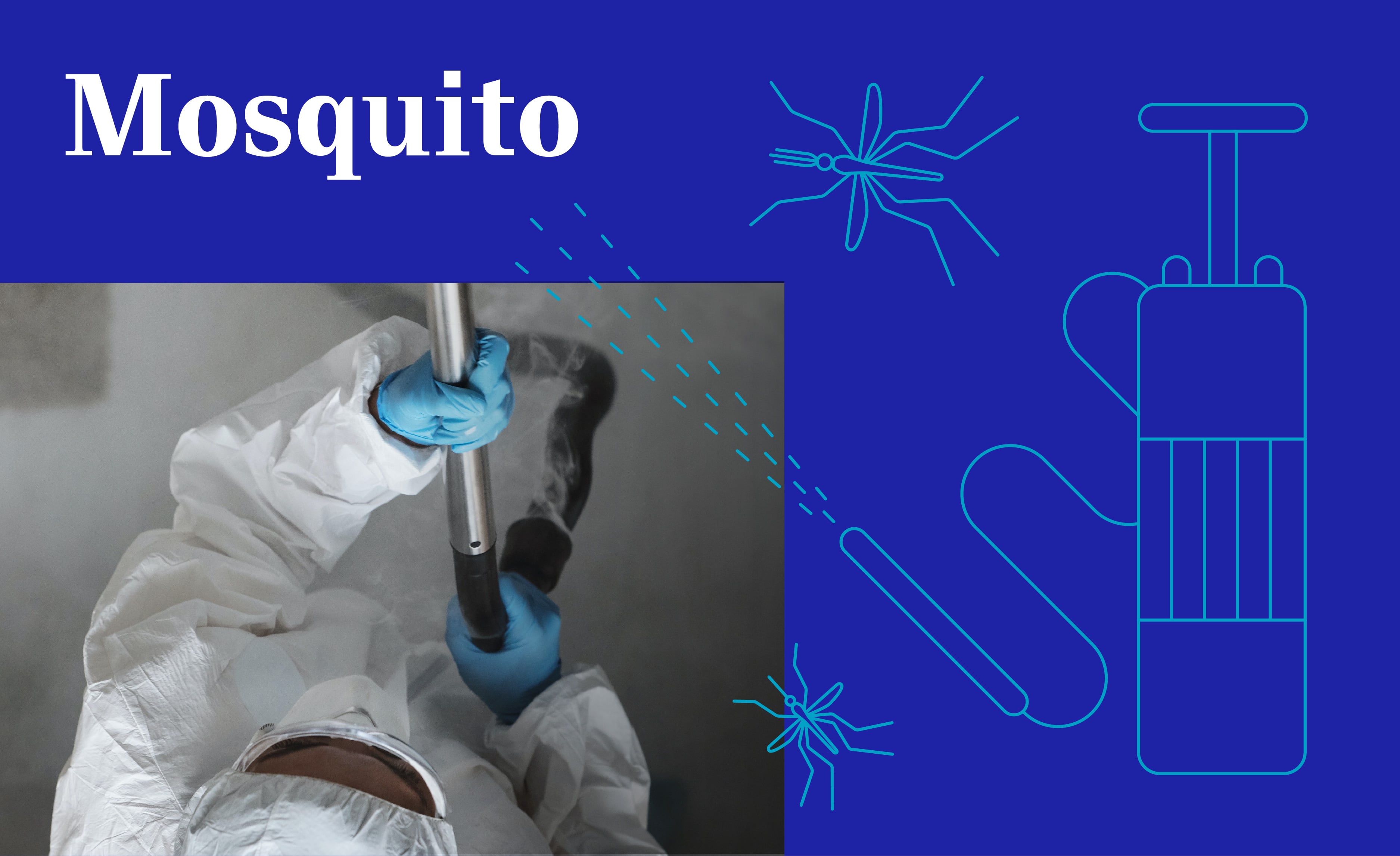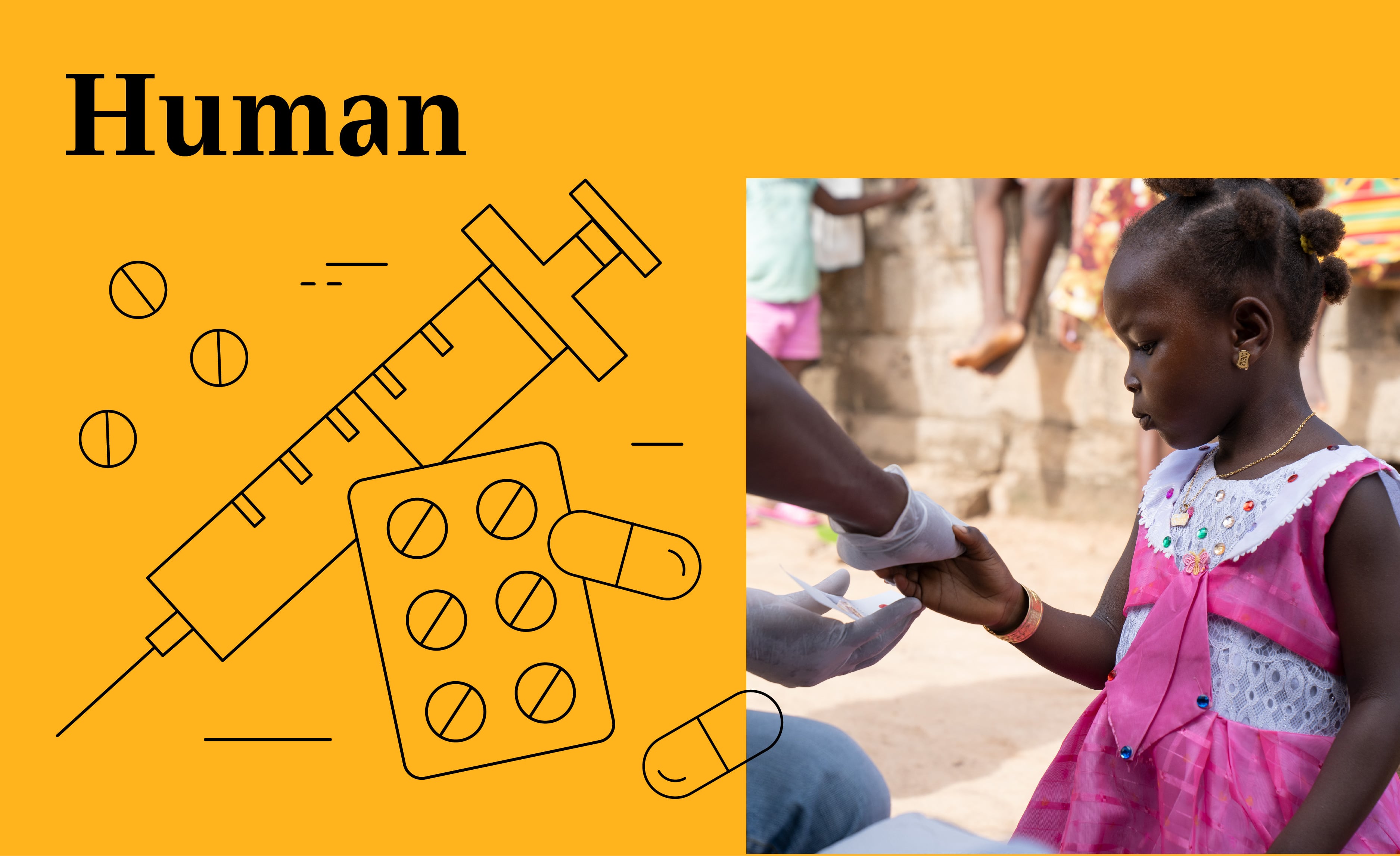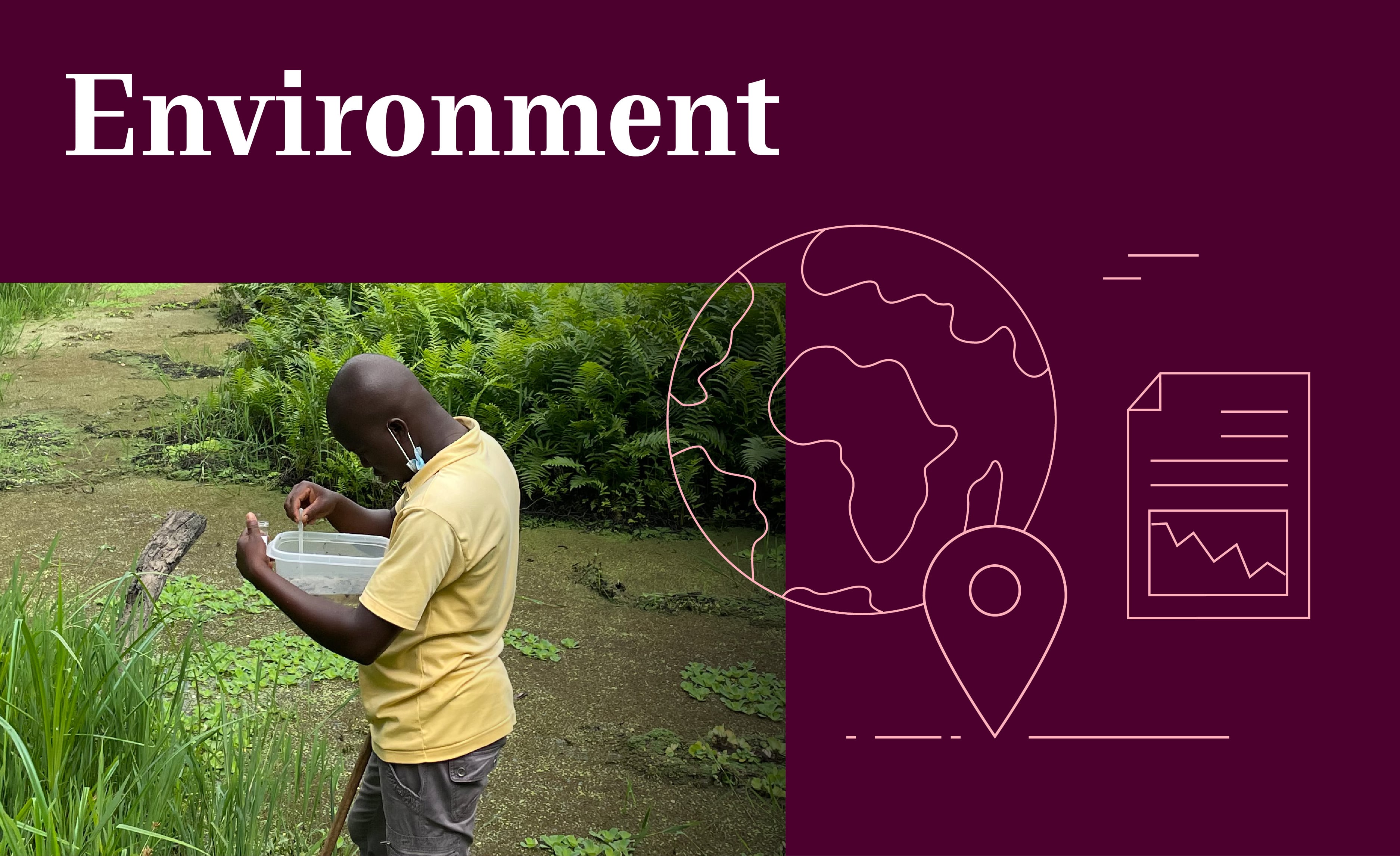- Find out more
-
A snapshot of the many projects at the Centre which focus on the deadly parasites that spread malaria around the bodies of human, mosquito and animal populations.
- Find out more
-
Our research into the mosquito ranges from vector control interventions such as indoor residual spraying (IRS) and bed net trials, to monitoring for invasive species and investigating the skin microbiome.
- Find out more
-
Recent advancements in vaccination and drug trials have contributed to marked achievements in Africa, alongside improving diagnostics across South-East Asia, and using cost-effective vector control interventions in low transmission settings.
- Find out more
-
Malaria and the environment are inextricably linked, with research into this relationship revealing the role of land-use and environmental change in the spread of disease.




